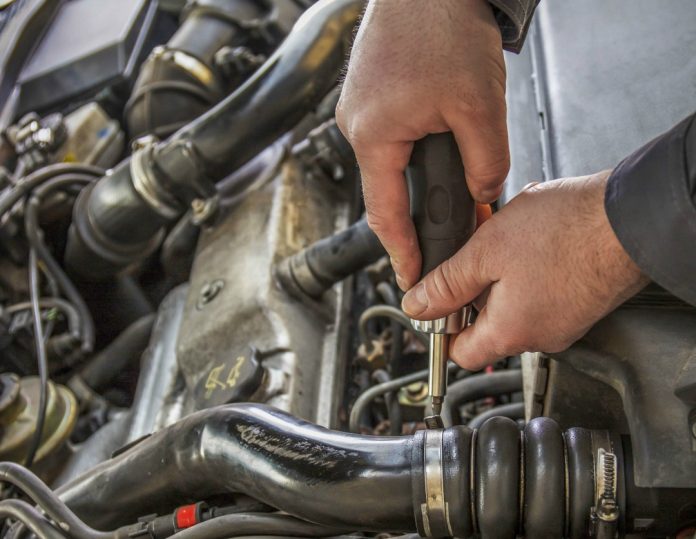SALEM, Ohio — New oil standards and two new oil products will help protect diesel engines and provide higher fuel efficiency, said Kevin Ferrick, senior manager of the American Petroleum Institute Engine Oil Licensing and Certification System.
The new CK-4 and FA-4 diesel oils will also assist manufacturers meet more stringent emissions requirements. The upgraded API CK-4 and FA-4 oil specifications have been eligible for licensing since Dec. 1, 2016.
CK-4’s introduction is long overdue: CJ-4 oils, CK-4’s predecessor, has been around for more than 10 years, Ferrick said, and usually such standards are revised every five years.
These new oils are readily available on the market. The institute has licensed approximately 430 CK-4 and more than 65 FA-4 oils submitted by large, medium and small oil marketers.
While already significant, the institute expects availability to grow substantially over the next few years, as more oil marketers add oils meeting the new standards to their product lines to address the needs of a variety of engine technologies — new and old, and for use both on and off the highway.
CK-4
American Petroleum Institute CK-4 oils are intended for diesel-powered engines previously using API CJ-4 oils, and API FA-4 oils are intended for newer engines, typically 2017 model-year engines and beyond.
API CK-4 oils are backward-compatible, meaning they are designed to be used in engines where API CJ-4 engine oils have been previously recommended.
The main thing is for owners to follow the owner’s manual recommendations, said Ferrick. Using CK-4 is an upgrade. As long as they are using API-licensed oil, users shouldn’t notice any immediate operating differences, but in the long run willhave more engine protection and/or higher fuel efficiency.
Improvements over CJ-4 include: improved shear stability, oxidation resistance, and aeration control as well as protection against catalyst poisoning, particulate filter blocking, engine wear, piston deposits, degradation of low- and high-temperature properties, and soot-related viscosity increase.
FA-4
FA-4 oils provide similar improvements over CJ-4 oils, but it is important to note that FA-4 oils are intended only for use in newer, on-highway diesel engines.
The API FA-4 oil standard was developed specifically to provide engine manufacturers with a tool for meeting more stringent greenhouse gas emission standards, Ferrick said.
“Those running agricultural equipment will see a net effect of better protection for their equipment,” Ferrick said.
Visit www.dieseloilmatters.com for more information about API CK-4 and FA-4 diesel oils and their use in on- and off-highway diesel vehicles and equipment.
Compare new diesel oil products
CK-4
- For current and older engines
- Backward compatible with CJ-4, CI-4 with CI-4 PLUS, CI-4, and CH-4 oils
- Improved shear stability
- Minimum HTHS viscosity, 3.5 cp
- Available in typical diesel viscosity grades SAE 15W-40, 10W-40, and 10W-30 (may even be offered in lighter viscosity grades)
- On-highway and non-road use
- Higher level of wear and oxidation protection versus API CJ-4 oils
A-4
- For newer designs of engines (late 2016 and beyond)*
- NOT backward compatible with API CK-4, CJ-4, CI-4 with CI-4 PLUS, CI-4, and CH-4 oils because of lower HTHS viscosity
- Same benefits as CK-4, plus potential to reduce emissions because of lower HTHS viscosity (2.9–3.2 cP)
- Available in SAE 10W-30, 5W-30, and 0W-30
- Check with engine manufacturer regarding non-road use
- Improved fuel economy performance versus API CJ-4 oils
- Developed to deliver engine parts protection even with thinner oil films










